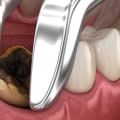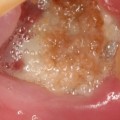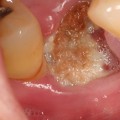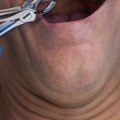Tooth extraction is a dental procedure that many of us will face at some point in our lives. Whether it's due to severe tooth decay, gum disease, overcrowding, or other oral health issues, having a tooth extracted can be a daunting prospect. However, when you're in the skilled hands of the best dentist in Tempe, the process becomes more manageable, and less painful, and ensures a smooth journey from consultation to recovery. In this article, we'll take you through the entire process of tooth extraction in Tempe, highlighting the crucial role of a qualified dentist.
Understanding The Need For Tooth Extraction
If you're experiencing severe tooth decay or damage, you may need to consider a tooth extraction. Sometimes, even with the best dental care, there are situations where a tooth extraction becomes necessary. But don't worry, there are alternatives to tooth extraction that your dentist can explore before making that decision. Tooth extraction alternatives are often considered when the tooth can be saved through other means. This could include procedures such as root canal therapy or dental crowns. Your dentist will carefully evaluate your specific situation and recommend the most appropriate course of action. However, it's important to understand that complications can arise from a tooth extraction procedure. While it is generally a safe and effective treatment option, there are risks involved.
Some common complications of tooth extraction include infection, bleeding, dry socket (a painful condition where the blood clot doesn't properly form), and nerve damage. To minimize these risks and ensure a smooth recovery process, it is crucial to choose an experienced dentist who specializes in tooth extractions. They will have the expertise and knowledge to handle any potential complications that may arise during or after the procedure. Remember, if you're facing severe decay or damage to your teeth, consulting with a skilled dentist about your options is essential. They will guide you through the process from consultation to recovery while considering all possible alternatives before resorting to tooth extraction.
Finding The Right Dentist In Tempe
When looking for a Tempe orthodondist, you should consider their qualifications and experience. It's important to find a dentist who is well-trained and has a good track record of successful dental procedures. You want someone who can handle tooth extractions with expertise and precision. Regular dental check-ups are crucial for maintaining good oral health. They allow dentists to identify any potential problems early on and provide appropriate solutions. By visiting your dentist regularly, you can prevent serious dental issues that may require tooth extraction. There are several common dental problems that may lead to tooth extraction. These include severe tooth decay, gum disease, and impacted wisdom teeth.
A skilled dentist will be able to diagnose these issues during your regular check-ups and recommend the best course of action. When it comes to finding the right dentist in Tempe, it's also important to consider their communication skills and bedside manner. You want a dentist who listens to your concerns, answers your questions, and makes you feel comfortable throughout the entire process. Consider their qualifications, experience, communication skills, and bedside manner. Remember the importance of regular dental check-ups in preventing common dental problems that may require extraction.
Preparing For Your Tooth Extraction
Before undergoing a tooth extraction, it's important to prepare yourself mentally and physically. The thought of having a tooth removed can be intimidating, but with the right preparation, you can make the process smoother and more comfortable. Here are some preparation tips to help you get ready for your tooth extraction. Firstly, make sure to have a discussion with your dentist about the procedure. They will explain what to expect during the extraction and answer any questions or concerns you may have. This will help alleviate any anxiety or fear you might be feeling. Next, follow any pre-operative instructions provided by your dentist. This may include avoiding eating or drinking for a certain period of time before the procedure.
It's important to follow these instructions to ensure a successful extraction. Additionally, consider pain management options. Talk to your dentist about what type of anesthesia will be used during the procedure and discuss any concerns or preferences you may have. Your dentist will work with you to find the best pain management plan that suits your needs for your orthodontics care. By taking these steps and being prepared, you can approach your tooth extraction with confidence and ease. Remember that your orthodontist is there to support you throughout the process, so don't hesitate to ask questions or voice any concerns you may have.
The Tooth Extraction Procedure
During the tooth extraction procedure, your dentist will carefully remove the affected tooth to alleviate any discomfort or pain. The process begins with the application of a local anesthetic to numb the area around the tooth. This ensures that you won't feel any pain during the procedure. Once the anesthesia takes effect, your dentist will use specialized tools to loosen and detach the tooth from its socket in the jawbone. The extraction itself is usually quick and straightforward, but it's important to follow post-operative instructions carefully for a smooth recovery process. Your dentist may place gauze over the extraction site to control bleeding and promote clot formation. They may also provide you with pain medication and antibiotics if necessary.
While complications are rare, they can occur during or after a tooth extraction. Some common complications include infection, dry socket (when a blood clot fails to form or becomes dislodged), nerve damage, or excessive bleeding. However, by closely following your dentist's instructions and maintaining good oral hygiene habits after surgery, you can minimize these risks. Remember that every individual's recovery process differs slightly based on various factors such as age, overall health, and whether any additional procedures were performed alongside the extraction. If you experience severe pain or prolonged bleeding after your procedure, contact your dentist immediately for further guidance and support.
Post-Extraction Care And Recovery
Following a tooth extraction, it is important to carefully follow post-operative instructions for a smooth recovery process. One of the key aspects of your recovery will be managing any post-extraction pain. Your dentist will likely prescribe pain medications to help alleviate any discomfort you may experience. It's crucial to take these medications as directed and not exceed the recommended dosage. In addition to pain management, maintaining a proper diet after tooth extraction is essential for healing. For the first 24 hours after the procedure, it is best to stick with soft foods that require minimal chewing, such as mashed potatoes, yogurt, or soup.
Avoid hot foods or drinks during this time as they can potentially dislodge blood clots and prolong healing. After 24 hours, you can gradually introduce more solid foods into your diet. However, it's still important to avoid hard and crunchy foods that could irritate the extraction site. Instead, opt for softer options like pasta, scrambled eggs, or cooked vegetables. Remember to drink plenty of fluids throughout your recovery process but avoid using straws as suction can disrupt blood clot formation and impede healing. By following these guidelines for post-extraction care and recovery, you'll be on your way to a speedy and successful healing process.
Maintaining Oral Health After Tooth Extraction
To ensure proper healing, it's crucial to maintain good oral hygiene after a tooth is removed. Taking care of your mouth during the recovery process can help prevent complications and promote faster healing. One important aspect of maintaining oral health after tooth extraction is practicing good oral hygiene. This includes gently brushing your teeth twice a day with a soft-bristled toothbrush and using an antimicrobial mouthwash to keep bacteria at bay. Don't forget to clean the extraction site as well, but be careful not to disturb the blood clot that forms in the socket.
In addition to oral hygiene, dietary modifications can also play a role in promoting healing after tooth extraction. Stick to soft foods for the first few days and avoid hot liquids or spicy foods that could irritate the area. Opt for nutrient-rich options like smoothies, yogurt, mashed potatoes, and scrambled eggs. It's important to avoid using straws or smoking during this time as suction can dislodge the blood clot and increase your risk of dry socket. By following these guidelines for maintaining oral health after tooth extraction, you'll be helping your mouth heal properly and minimizing any discomfort or complications along the way. Remember to follow any specific instructions provided by your dentist for optimal recovery.
Contact A Qualified Dentist For Tooth Extraction In Tempe
When it comes to tooth extraction in Tempe, you need a skilled and experienced dentist who can provide optimal care. At Risas Dental and Braces - Tempe, their team of qualified dentists specializes in tooth extractions and understands the importance of providing gentle yet effective treatment. By choosing them for your tooth extraction needs, you can rest assured that you are receiving top-notch care from professionals who are dedicated to your well-being. Their dentists will thoroughly evaluate your condition, discuss the procedure with you, and answer any questions or concerns you may have. Don't let a tooth extraction be an intimidating prospect. Contact them today for a consultation with a qualified dentist who will guide you through every step of the process.






